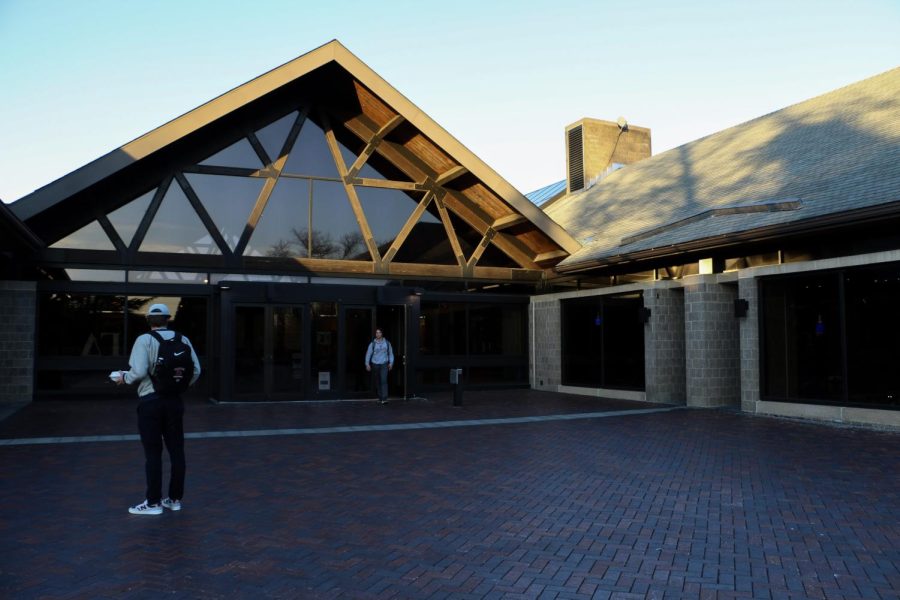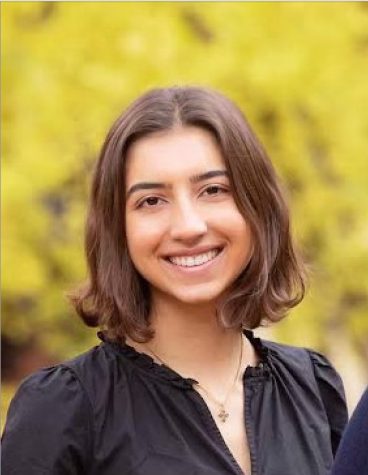University Hosts Annual Gender and Women’s Studies Conference
The symposium was hosted in Connelly Center’s cinema.
February 22, 2023
On Friday, Feb. 10, the University hosted its annual Gender and Women’s Studies (GWS) Conference from 9 a.m. to 4 p.m. in the Connelly Center. Graduate and undergraduate Villanovans, in addition to students from nearby colleges, were invited to share their work relating to the GWS discipline and present to their peers during a series of panels. Panels throughout the day were guided by themes such as “Relationships, Families, Communities” and “Feminist and Queer Theory,” and the conference concluded with a Performance Showcase in the Connelly Cinema.
Dr. Lauren Shohet, a professor in the English Department, is the chair for the conference. She provided insight into the process of organizing the conference and changes from last year’s event.
“The steering committee has a conference call in the fall where we look at who we might want to bring as a keynote, which helps to organize the overall conference,” Shohet said. “We then make a timetable for when to remind students and colleagues to have a look out for likely work to present. This year at that meeting, I also proposed a number of experimental changes that we might make.”
These changes sought to elicit more engagement during the panels, such as having presenters organize their discussion around two key questions, providing reflection questions for attendees and providing a booklet to all with spaces to take notes.
The keynote speaker who served as a focal point for this year’s conference was Dr. Emma Heaney, the Associate Director and Clinical Assistant Professor of the XE Program in Experimental and Social Engagement at New York University. Shohet spoke to what made Heaney’s keynote address, entitled “Literature Against Cisness” and grounded in trans studies, so compelling, as it revealed the prevalence of trans and queer identities throughout modernist and contemporary literature.
“I think that in trans studies generally, it’s an important intellectual and ideological gesture just to counter the false claim that it’s a brand-new thing, that nobody was ever trans until three years ago,” Shohet said. “I think these projects [like Heaney’s] of just showing that threaded throughout very familiar, modernist texts, as well as lesser read ones, there’s all kinds of indices of trans experience is exciting.”
Molly Carriero, a senior at the University, was also in attendance at the GWS Conference and presented her work there. She was a part of the panel with the theme “Representation and Intersectionality,” in which she talked about her paper entitled “Unsettling Feminism: Settler Colonialism, Gender, and Violence.”
“My work focused on understanding how heteronormativity in North America is a product of settler colonialism through studying the work of Leanne Simpson, a Michi Saagiig Nishnaabeg writer,” Carriero said. “In my research, I worked to understand how and why settler feminism is often wrong in its approach to gender equality.”
Carriero had a very positive experience presenting at the conference and enjoyed having the chance to discuss her work with others.
“It was a great feeling to share work I am passionate about with an audience of similarly passionate individuals,” Carriero said. “I especially enjoyed listening to my fellow presenters on my panel and hearing about the work they do. I would describe the energy in the room as curious and supportive.”
Carriero also spoke very highly of the other panels she attended and the conference in general, noting that among all who attended, “there was a strong sense of respect and enthusiasm.”
“The conference had an incredibly inviting and accepting atmosphere,” Carriero added. “Everyone was eager not only to share their work and findings, but to learn something new from those around them. After hearing about the work done by my fellow students, I felt refreshed, revitalized, and inspired to continue work in the area of gender studies.”
Shohet shared a similar sentiment, praising all of the students for their impressive work and noting how exciting it was to see many different departments and disciplines represented at the conference. She also mentioned that there is still room for students to grow for next year.
“I thought there was lots of lively conversation, [but] I’d like people to keep working on how to engage one another,” Shohet said. “In some of the panels I went to, people asked great questions and seemed to feel quite comfortable getting into the conversations, and in some of the other panels, people felt like they were still learning those skills.”
For those looking to improve upon those skills or might be interested in joining the GWS community, Shohet offered some words of advice, echoing the sentiment of Caterina Deuser, VU ’22, who served as the Alumnx speaker at the conference.
“I thought our Alumnx speaker Cat Deuser articulated better than I ever could the excitement of pursuing coursework, a minor, or a major in GWS, [which involves] giving you a vocabulary for drawing connections among different courses and different questions,” Shohet said. “My advice for people who are curious about GWS is go take a course with an attribute and see what excites you in it.”
The GWS Conference takes place each spring, so those who find themselves engaging critically with or being excited by disciplines related to gender studies, should be on the lookout for submitting a paper or attending a panel.



